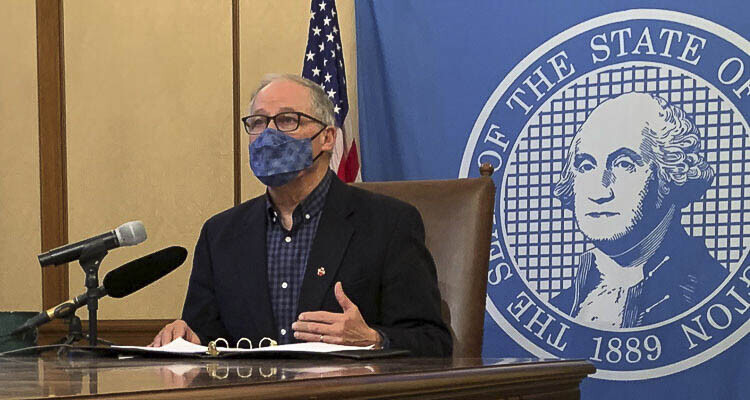
Politicians like Governor Inslee frequently boast about their commitment to the environment, but too often their actions and results fall far short of their rhetoric according to Todd Myers
Todd Myers
Washington Policy Center
Politicians like Governor Inslee frequently boast about their commitment to the environment, but too often their actions and results fall far short of their rhetoric.

Recently, Susannah Frame of KING 5 TV in Seattle highlighted that on many of the environmental issues highlighted by the Inslee Administration, they are missing their goals badly. However, one metric Frame mentioned in passing – Washington’s recycling rate – shows just how unserious the governor and agency staff are about meeting his own environmental promises.
Under “Sustainable Energy & Clean Environment Metrics,” Results Washington has a metric that claims to measure progress on recycling. There are numerous problems in just this one slipshod graphic.

First, there is no indication of what the recycling target should be. Is 40.7% good or bad? We don’t know because the state hasn’t set a target. The purpose of measuring is to track progress toward a goal and assess what policies are needed to achieve it. Without a goal, this metric is meaningless.
Second, the graphic contradicts itself. At the top, the metric is “Solid Waste Recycling Rate.” Below that, however, it says “recovery rate,” which is different. The state defines recycling as, “transforming or remanufacturing waste materials into usable or marketable materials for use other than landfill disposal or incineration.” Recovery rate is different. “The recovery rate calculation includes materials collected for recycling and other forms of recovery in the nominator, and the recoverable portion of solid wastes generated, including municipal solid waste and other waste types disposed in the denominator.” The terminology is inconsistent even within the small graphic.
The 40.7% metric listed in the graphic is for recycling, not recovery. Choosing recycling rate is strange because the state stopped using it as a metric in 2016. Given a choice between the recycling and recovery rates, Results Washington chose the one that hasn’t been used for nearly seven years.
The final absurdity is that while both recycling and recovery rate have been getting worse over the last decade, the graphic shows the arrow going up right next to the words “trending down.” Results Washington staff can’t even make the arrow match the words.
Since Jay Inslee created Results Washington in 2013 with the promise that it would hold government accountable, the agency has focused more on whitewashing the administration’s failures than finding ways to succeed. Routinely, the “Public Performance Reviews” with the governor are cheerleading sessions, focusing on whatever positive trends they can find, while ignoring evidence of failures.
The recycling graphic is just one more example of how disingenuous the Inslee Administration’s claims about accountability have been.
Todd Myers is the director of the Center for the Environment at the Washington Policy Center.
Also read:
- Opinion: The rent is overdue but it’s not just a renter problem, homeowners are struggling tooMark Harmsworth believes the solution to housing affordability is to increase supply through a reduction in unnecessary regulations and not passing restrictive ‘feel good’ policies that will have negative long-term consequences.
- Opinion: ‘Predators and progressives’Nancy Churchill attempts to answer why progressives protect predators
- Letter: ‘Nice to have a trustworthy publication’Brad Andersen suggests that “allowing some of the stories to play out a little more slowly may help return some old fashioned integrity in the newsmakers.’’
- Opinion: As more states enact learning choice programs that benefit children, nearly one million families have applied to participateLiv Finne of the Washington Policy Center reports that an exciting opportunity has emerged from the damage inflicted on students from the extended COVID public school shutdowns and school curriculum controversies.
- Opinion: Can we actually stop some dangerous driving?Doug Dahl, the Target Zero manager and communications lead, has a question for Washington drivers.










